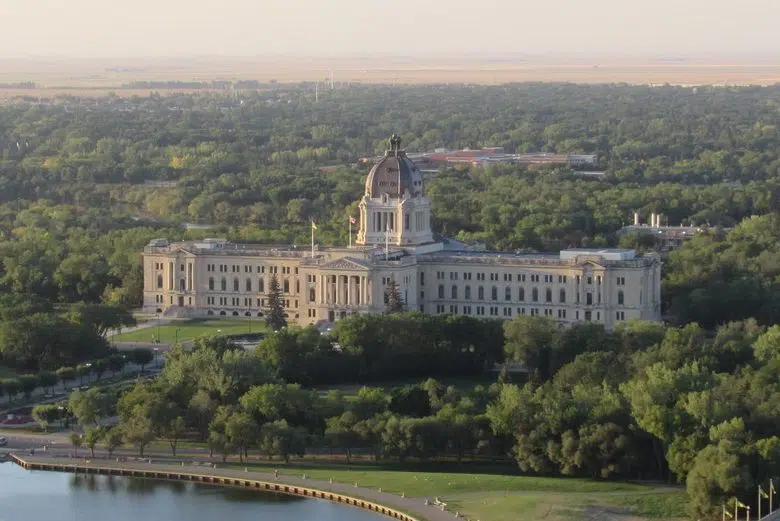A Saskatchewan historian says the provincial government’s white paper – entitled “Drawing the Line” – missed some critical historical context and didn’t address other long-standing issues.
Premier Scott Moe highlighted some of the topics in the policy paper during a meeting with the North Battleford Chamber of Commerce on Tuesday, and said he plans to introduce legislation this fall to protect provincial resources from what he described as intrusive federal policies.
Dr. Merle Massie, a historian at the University of Saskatchewan, said while the policy paper highlights some key historical moments in the province’s somewhat adversarial history with the federal government, it failed to address what she feels are two critical topics.
“When Saskatchewan won back from the federal government the right to our own Crown lands within the province, the area that did not get discussed and is not hammered out in any way was, of course, the treaties,” she said.
The treaty lands in Saskatchewan are federal crown lands, and treaty space, or First Nations, land falls under federal jurisdiction. Massie said nowhere in the policy document are Indigenous resource rights or access rights mentioned.
“That’s still a huge grey area, and Indigenous researchers have made that very clear,” she said. “The fact that this white paper carried absolutely no mention at all of Treaties, federal land, provincial land, and that debate, was astonishing.”
When it comes to Saskatchewan resources and access to them, Massie said due diligence with Indigenous communities is absolutely essential.
“If we’re protecting resource rights in Saskatchewan, that’s a very fundamental component – that’s working with Indigenous communities around their land and their access and their perspective on that. For that to be missing is a huge swing and a miss,” she said.
The Federation of Sovereign Indigenous Nations responded to the paper, calling it “a direct threat to First Nations inherent and Treaty rights as recognized and affirmed in Section 35 of the Constitution.”
The FSIN said the paper claims the federal government has continued to interfere with the province’s jurisdiction over natural resources.
“Yet, First Nations have always maintained that they never relinquished their rights to the natural resources on their lands and the province has never fully considered the environmental impacts on First Nations,” the release said.
“When the province ignores its constitutional obligations to consult on such important policies, First Nations have no choice but to consider their legal options. The Premier must do better and he must address his obligations to First Nations before he develops plans that will no doubt impact our Nation,” FSIN Vice Chief Heather Bear said in the release.
The second issue Massie said wasn’t addressed was the fact that when the province received back its Crown land and the right to the money from the sale of it and the development of its resources in 1930, Saskatchewan went into an economic nosedive and became one of the hardest-hit provinces in the country during the Great Depression.
“Looking to resources as this economic panacea that is going to solve all of the provincial ills is a bit of a strange perspective because it doesn’t recognize that A), it can’t always bail out the province, and B), sometimes resource economics are down instead of up,” Massie said.
“And there’s no recognition in this document of what happens if resource royalties disappear, or if the line-in-the-sand investment in resources doesn’t always pan out the way the province hopes that it will. You can’t always assume that resources are up.”
Massie called the paper a “warning shot across the bow,” but not something that included practical next steps for the province. However, the paper was a great opportunity, she thought, to address the provincial-federal political divide and why it exists.
“The Sask. Party is one of many governments that have had to make a stand against the federal government against what they perceive as oversight,” she said, adding that Saskatchewan’s history is full of places and times where there’s been a tense relationship with Ottawa.
“Western alienation has deep roots; socially, politically, economically. There’s all kinds of reasons for people to be as angry as they often are.”
That anger, she argued, is easy to incite.
“The kicker issue for Saskatchewan tends to be fairness.” she said.
“I think the federal government for their part, needs to do a better job on fairness, and that would go a long way.”











